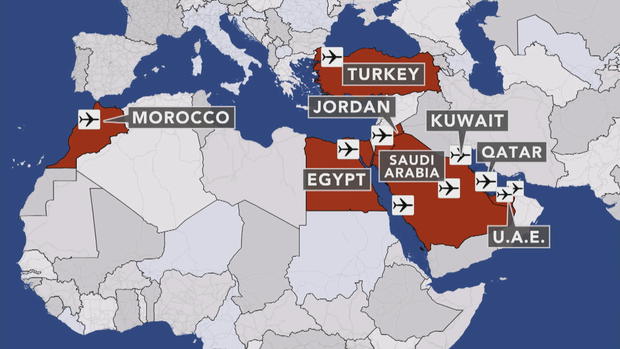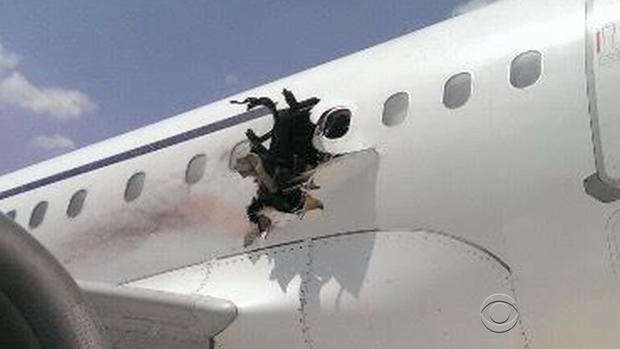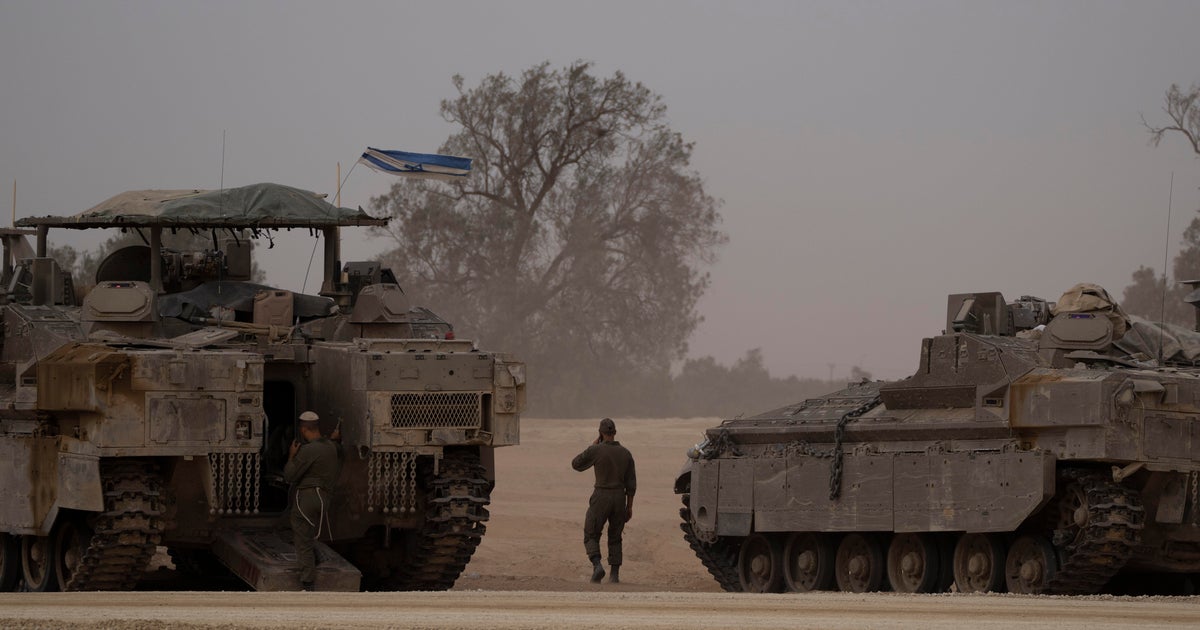Official: Ban on electronics in carry-ons tracks back to 2016 bombing
WASHINGTON -- A new ban on most electronics in carry-ons on flights from eight mostly Middle Eastern and North African countries tracks back to a laptop bombing last year, a U.S. official says.
Since the laptop bombing of an airliner out of Mogadishu in February 2016, there has been an accumulation of intelligence that convinced analysts that al Qaeda has developed the capability to hide explosives in batteries of the size used in laptops and tablets, a U.S. official told CBS News national security correspondent David Martin.
Had the bomb gone off at high altitude, it would have been disastrous, the official said.
For some time now, U.S. officials have been concerned about al Qaeda’s and the Islamic State of Iraq and Syria’s obsession with bringing down an airplane, CBS News justice and homeland security correspondent Jeff Pegues reported.
Now, the U.S. and British governments are barring passengers on some international flights from mostly Middle Eastern and North African countries from bringing laptops, tablets, electronic games and other devices on board in carry-on bags.
The “laptop ban” plan has been in the works for a week or two, a U.S. official said, CBS News’ Andres Triay reports.
Passengers flying to the U.S. from 10 airports in eight countries will be allowed only cellphones and smartphones in the passenger cabins, senior Trump administration officials said. Larger electronic items must be checked.
The U.S. rules took effect Tuesday, and airlines will have until 3 a.m. ET Saturday to implement them or face being barred from flying to the U.S., the officials said.
Trump administration officials briefed reporters on condition they not be identified publicly. That was despite President Donald Trump’s repeated insistence that anonymous sources should not be trusted.
According to former CIA deputy director and CBS News senior national security contributor Michael Morell, the announcement implies the U.S. has “credible intelligence of a plot to attack an airliner with the larger devices that must now be checked.”
But with 10 airports and nine airlines in the countries being told they have 96 hours (until Saturday) to comply, Morell said on “CBS This Morning” that it doesn’t sound like an “imminent threat.”
“It sounds more like a general plot that we’ve learned about. A plan to do something significant, but not specific,” Morell said.
The electronics ban affects flights from international airports to the U.S. from in Amman, Jordan; Kuwait City, Kuwait; Cairo; Istanbul; Jeddah and Riyadh, Saudi Arabia; Casablanca, Morocco; Doha, Qatar; and Dubai and Abu Dhabi in the United Arab Emirates. About 50 flights a day, all on foreign carriers, will be affected. The officials said no U.S.-based airlines have nonstop flights from those cities to the United States.
The British security rules will apply to flights from Turkey, Lebanon, Jordan, Egypt, Tunisia and Saudi Arabia, and will bar passengers from some devices based on their size into the cabin. An official statement by the British Department for Transportsaid that phones, laptops and tablets larger than 16 cm long, 9.3 cm wide and 1.5 cm deep “will not be allowed in the cabin on selected flights to the UK from the countries affected.”
“Most smart phones fall within these limits and will continue to be allowed on board,” the statement said.
With the order affecting flights from predominantly Muslim nations, the ban in the U.S. may invite comparisons to Trump’s orders barring travel from several Muslim-majority-nations, which have been blocked by courts. Early in his candidacy, Trump had called on barring Muslims from entering the United States.
But the comparison has its limits. The travel ban was more severe, separating families and barring students from studying in the U.S. The laptop ban is more of an inconvenience and its stated reason is to protect the very travelers who are affected by it. Still, it’s bound to annoy powerful business people and diplomats, and could affect the travel plans of wealthy tourists sought after by the U.S. travel industry.
Details of the electronics ban were first disclosed by Royal Jordanian and the official news agency of Saudi Arabia. In its statement, Royal Jordanian said the electronics ban would affect its flights to New York, Chicago, Detroit and Montreal.
A spokesman for Royal Jordanian says the airliner has not yet started to enforce the new U.S. regulation. Basel Kilani has told The Associated Press that the airline was still awaiting formal instructions from the relevant U.S. departments, which could possibly come later on Tuesday.
EgyptAir officials said the airline will implement that ban on Friday, while Emirates officials said the new security procedures would start on Saturday for its passengers.
However, the Mideast’s biggest airline is confirming that U.S.-bound passengers will be prevented from carrying electronic gadgets aboard aircraft. Dubai-based Emirates said Tuesday the ban takes effect on Saturday. That guidance differs from the information provided by senior Trump administration officials, who have said the ban is in place from Tuesday.
Homeland Security Secretary John Kelly phoned lawmakers over the weekend to brief them on aviation security issues that have prompted the impending electronics ban, according a congressional aide briefed on the discussion. The aide was not authorized to speak publicly about the issue and spoke on the condition of anonymity.
The administration officials who briefed reporters about the ban said foreign officials were told about the impending order starting Sunday.
A U.S. government official said such a ban has been considered for several weeks. The official spoke on the condition of anonymity to disclose the internal security discussions by the federal government.
The ban would begin just before Wednesday’s meeting of the U.S.-led coalition against the Islamic State group in Washington. A number of top Arab officials were expected to attend the State Department gathering. It was unclear whether their travel plans were related to any increased worry about security threats.
Most major airports in the United States have a computer tomography or CT scanner for checked baggage, which creates a detailed picture of a bag’s contents. The equipment can warn an operator of potentially dangerous material, and may provide better security than the X-ray machines used to screen passengers and their carry-on bags. All checked baggage must be screened for explosives.





